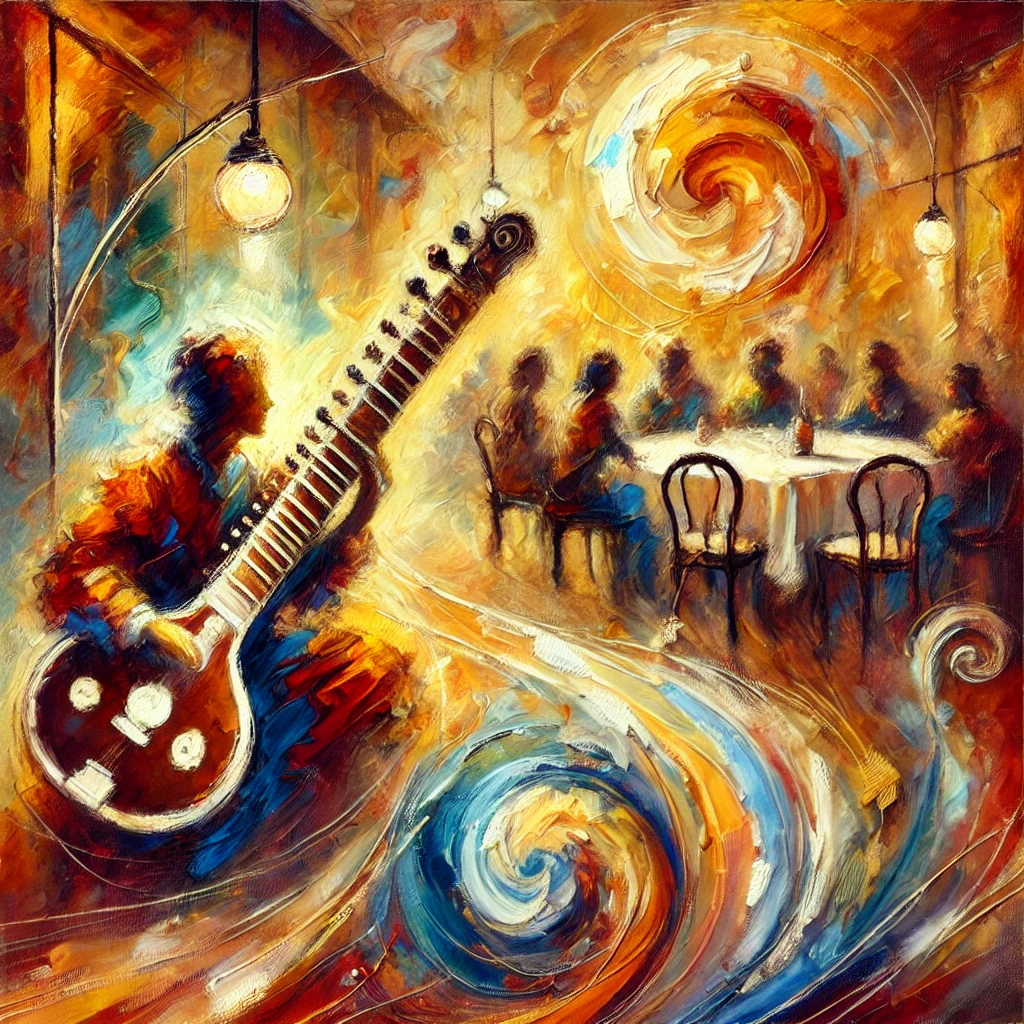music school and the permission to fail
Music school robs students of joy.
It injects perfectionism, a pernicious thought trap that creates a negative association with any musical mistake. It foments fear in the minds: any misstep and you won't make it to the top—or as a musician at all in the classical world. The culture is an echo chamber that ensnares students in judgment of one another and fear of performing without having practiced to the tee.
Plot twist: I am a proponent of music school. The discipline and skills you learn there are invaluable, especially when it comes to technique development and aural skills. But the cultural and psychological negatives are non-trivial. Most music school musicians I've talked to have shared this mild PTSD of performance anxiety and perfectionism.
When organizing an intentional listening event—a low-pressure, low-key gathering where a group of friends comes together to share and listen attentively to recorded music on high-quality speakers—my cohost offered to sing a piece. Amazing! I loved the offering and encouraged it. But within only a few minutes, she expressed anxiety: she needed a safe space to sing given her conditioning in a musical theatre program. If I am to take a harsh evaluation, I'd say imperfection was not an option for her. Forgetting lyrics, singing out of tune—any such errors would lead to judgment from peers that would make her feel worse about singing.
The thing is: I get it. I understand how vulnerable the voice is as an instrument. And yes, people are judgy. Yes, it hurts when people evaluate you poorly. I've been on that chopping block many times for instrumental and vocal music. I've had folks—high-status professionals in the music industry—straight up tell me I shouldn't sing. Ouch. And yes, it does stick.
I may not have a global panacea prescription, but I do know what has helped me heal and approach performance more freely. It was a form of exposure therapy. Maybe it was pure luck. Playing sitar as background and foreground gigs, years at a lounge where I was to play whatever improvised music for two hours, put me in a position where I would make mistakes frequently. I didn't start with two hours of material. When I got my first regular sitar gig at a Nepalese restaurant in Evanston, I had never played for more than 10 minutes straight—my fingers would hurt too much, and I'd have to stop.
I made so many mistakes in those performances. Luck and grace may have been my champions here—no one seemed to care because I was playing sitar, which most people haven't even heard live and don’t have a standard of what is "good" or "bad" playing. They weren’t fully focusing on me. I had freedom to experiment. I had permission to make mistakes. I would try new things and fail. I would have to make the really bad failures sound kind of good—or at the very least, intentional.
That exposure and training acclimated me to making mistakes in public. I became more willing to do so. Now, I still believe there is a standard when you're performing for an audience who's paid to see you play. Put that music school discipline to use—doing your best is important. But permission to perform imperfectly is incredibly useful in helping us get acclimated and ready for higher-pressure performances. It gives us the skills to make mistakes either intentional or at the very least graceful. It is a very important part of the performer's training ground.
What's a graceful mistake? Even if something is so obvious and egregious, there are ways to laugh it off as a performer, ways to tell a story that bring the audience along with you to take the edge off the egregiousness. I've seen performers forget their lyrics, laugh about it, and invite the audience to relish in the humanity of their mistake. Sure, this may not be the culture of all genres, but even Miles Davis said there are no wrong notes. It's the note you play after it that makes it right or wrong. A chapter is not the end of the story; the next word, the next sentence, the next chapter can make all previous ones make sense.
The next time you have an opportunity to perform, remember: it's ok to fail. You have permission to make mistakes. Do your best, but recognize your resources and that you’ll not be fully prepared for all gigs. That's part of the deal. Music performance can reflect life, and life has its ups and downs—a performer will have their good and bad days.
